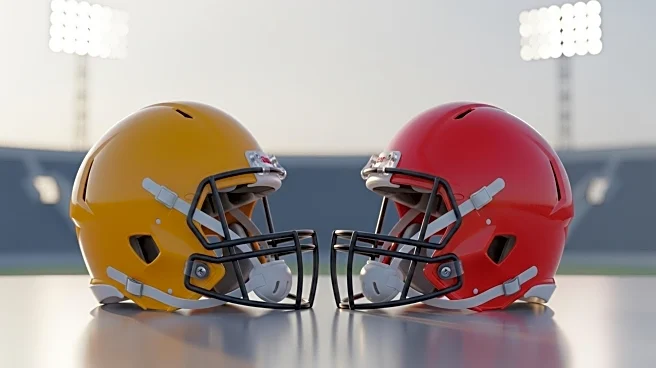What's Happening?
Colin Kaepernick, former NFL quarterback and civil rights activist, has been invited by Doug Whaley, the UFL senior vice president of player personnel, to join the spring football league. This invitation comes ahead of the 2025 NFL season, offering Kaepernick a chance to compile game tape that could facilitate his return to the NFL. Kaepernick has not played in the NFL since the 2016 season, following his protest during the national anthem against racial injustice and police brutality. Despite his absence from the league, Kaepernick has expressed his continued desire to return, stating last year that he is still training and pushing for a comeback.
Why It's Important?
The invitation from the UFL represents a significant opportunity for Kaepernick to showcase his skills and potentially re-enter the NFL. His return to professional football could reignite discussions around his activism and the broader issues of racial injustice and police brutality that he highlighted during his NFL career. For the UFL, having a high-profile player like Kaepernick could increase visibility and credibility, potentially attracting more fans and players to the league. This development also underscores the ongoing challenges and opportunities for athletes who use their platforms for social activism.
What's Next?
If Kaepernick accepts the UFL's invitation, he will have the chance to demonstrate his abilities on the field, which could lead to renewed interest from NFL teams. The decision could also prompt reactions from various stakeholders, including NFL executives, players, and civil rights groups, who may weigh in on the implications of his return to professional football. Additionally, Kaepernick's participation in the UFL could influence other athletes considering similar paths to maintain their professional careers while advocating for social change.
Beyond the Headlines
Kaepernick's potential involvement with the UFL could have deeper implications for the intersection of sports and activism. It may inspire other athletes to pursue alternative leagues where they can continue their careers without compromising their social justice efforts. This situation also highlights the evolving landscape of professional sports, where players increasingly leverage their influence to address societal issues, potentially reshaping the role of athletes in public discourse.










